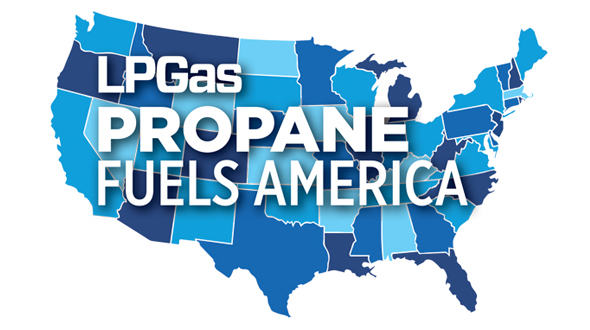Midwest states among top propane gallon sellers
Midwest states with high retail propane gallon sales draw the attention in this month’s Propane Fuels America series.

Map image: Kolonko/iStock / Getty Images Plus/Getty Images
Among the top six states for gallon sales in 2019 – the latest year of available data compiled by ICF for the Propane Education & Research Council (PERC) – are Minnesota (No. 2), Iowa (4), Illinois (5) and Wisconsin (6).
Cold weather and crop drying seem to bond this group of four.
Minnesota passed California for runner-up in 2019 gallon sales by finishing second in agricultural gallons and third in residential gallons. Iowa remained the top-ranked state for ag sales and ranked sixth in the residential sector. Illinois ranked fifth in the residential sector and third in agriculture. Wisconsin also has a large agricultural sector, selling more than 50 million gallons, primarily for crop drying, in 2019.
To help farmers better prepare for their propane needs, marketers in Iowa, and across the Midwest, use a grain drying calculator developed by PERC, says Deb Grooms, CEO of the Iowa Propane Gas Association. The tool helps farmers estimate the amount of propane each operation will require, making it easier to fill tanks early and prepare for supply needs prior to an increase in demand. Propane marketers also use PERC’s grain drying demand models to effectively estimate grain drying demand as harvest season approaches, says Grooms.
The weather in these Midwest states is favorable to propane gallon sales. Minnesota and Wisconsin finished in the top 10 for the most heating degree-days in 2019 – third (9,111) and ninth (7,808), respectively. All four states were well above the U.S. average of 4,249.
Even states boasting strong propane gallon sales face obstacles, however, as the industry seeks parity with other energy sources and has taken measures to protect against harmful regulations.
“Natural gas expansion continues to be a challenge for our industry, especially in new developments,” says Emma Corning, executive director of the Wisconsin Propane Gas Association. “Our industry has done a fantastic job at growing gallons in other sectors, such as transportation.”
Ellen Kriz and Carly McFadden contributed to this article.
















